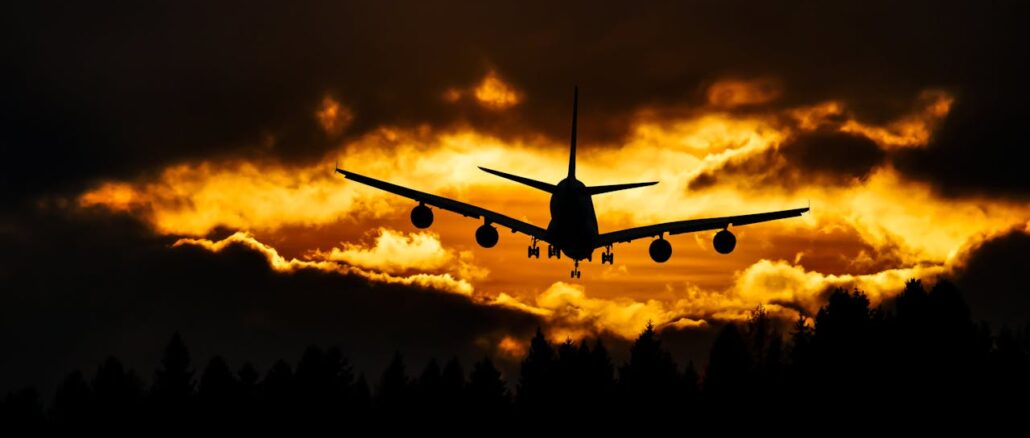
Airlines exploit outdated advice to charge higher prices on popular booking days
For years, seasoned travellers have sworn by one golden rule: book your flights on Tuesday for the biggest savings. This advice has been passed down through travel forums, money-saving blogs, and word of mouth for over a decade. But according to one personal finance expert, blindly following this outdated strategy could now actually be costing you more money.
Fred Harrington, CEO of Proxy Coupons, a platform specialising in discount codes and deals, has spent years analysing pricing patterns across various industries. With his expertise in uncovering the best online deals, Harrington warns that the Tuesday flight booking myth needs updating.
“The travel landscape has changed dramatically since this advice first emerged,” explains Harrington. “What worked in 2010 doesn’t necessarily work in 2025, and travellers who stick rigidly to Tuesday bookings might find themselves paying premium prices.”
Below, Harrington reveals why this old wisdom no longer holds true and shares his updated strategies for securing genuinely cheaper airfare.
Where The Tuesday Rule Came From
The Tuesday flight booking advice wasn’t pulled from thin air. Back in the early 2000s and 2010s, airlines operated on much simpler pricing models. Most carriers would update their fare systems on Tuesday evenings, often dropping prices to compete with rivals’ Monday night sales.
“This created a genuine window where Tuesday mornings offered the best deals,” says Harrington. “Airlines were less sophisticated with their pricing back then, so patterns were more predictable.”
However, those days are long gone. Modern airlines use complex algorithms that adjust prices multiple times per day based on demand, competitor pricing, and booking patterns.
Why Tuesday Bookings Can Cost You More
Today’s reality is far different from the old Tuesday rule. Business travellers, who typically have higher budgets and less price sensitivity, often book midweek flights on Tuesdays and Wednesdays. This increased demand during traditional “cheap” days has actually pushed Tuesday prices higher.
“Airlines now track every click, every search, and every booking pattern,” explains Harrington. “They know that people expect Tuesday to be cheaper, so they’ve adjusted their algorithms accordingly.”
Research shows that Sunday bookings now often yield better prices than Tuesday bookings, particularly for domestic flights. Weekend bookings face less competition from business travellers and corporate travel departments.
How Modern Airline Pricing Really Works
Gone are the days of simple, predictable pricing schedules. Today’s airlines use dynamic pricing that changes based on hundreds of factors including weather patterns, local events, competitor actions, and even your browsing history.
“It’s like stock market trading but for plane seats,” says Harrington. “Prices can change several times within a single hour based on real-time demand data.”
Airlines also use sophisticated tracking to monitor booking patterns. If they notice increased searches for certain routes on Tuesdays, they’ll automatically increase prices to capitalise on expected demand.
Updated Strategies For Cheaper Flights
Harrington shares three modern approaches that actually work:
- Book On Sundays For Domestic Flights
Sunday bookings consistently show lower average prices for domestic routes. Business travellers rarely book on weekends, creating genuine opportunities for savings.
- Use The 54-Day Sweet Spot
Data shows that booking domestic flights 54 days in advance often yields the best prices. For international travel, aim for 70-80 days ahead.
- Clear Your Browser Data
Airlines track your searches and may increase prices if they see repeated interest in specific routes. Always search in incognito mode or clear your cookies between searches.
“The key is flexibility and smart timing, not blind adherence to outdated rules,” advises Harrington.
Fred Harrington, CEO of Proxy Coupons, commented:
“The travel industry has undergone a complete transformation in how it prices flights, yet many people are still using advice from 15 years ago. Airlines now employ the same sophisticated pricing strategies that we see across e-commerce – dynamic algorithms, demand forecasting, and behavioural tracking.
“What’s particularly interesting is how airlines have turned the old Tuesday rule against consumers. They know people expect Tuesday deals, so they’ve created artificial scarcity and higher demand on those days. It’s a classic example of how outdated money-saving advice can cost you more.
“The smart traveller today needs to think like the airlines think – focus on real demand patterns, avoid predictable booking behaviours, and always shop around with fresh browser sessions. The deals are still out there, but you need updated strategies to find them.”

